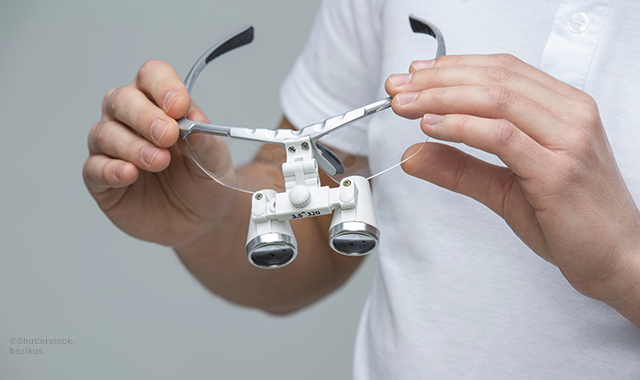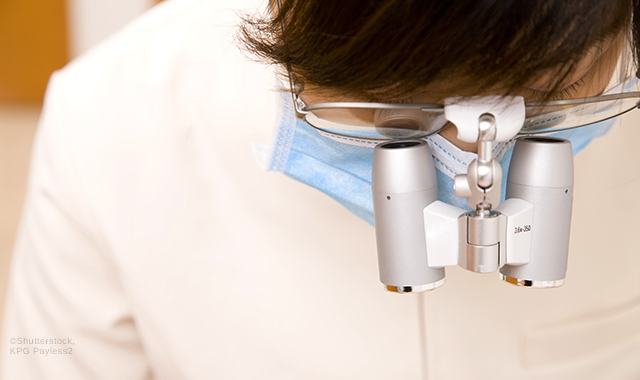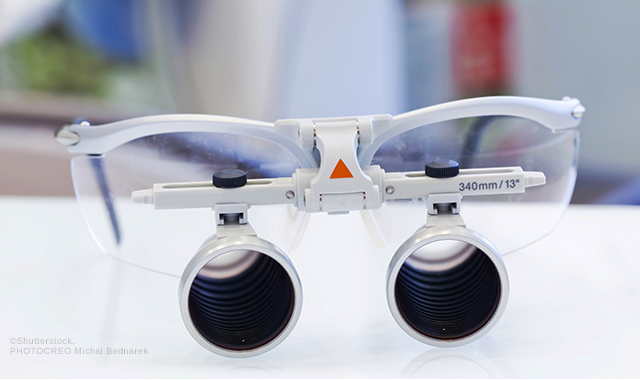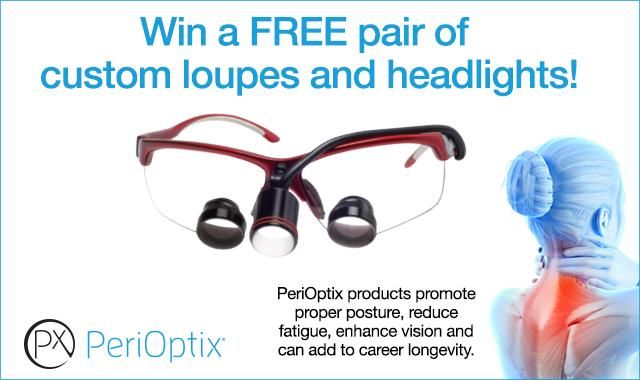6 important considerations when deciding on loupes
Should you or shouldn't you? These tips can help you decide if-and which-loupes are right for you.
On a weekly, if not daily, basis, I see dental hygienists asking whether or not they should purchase loupes. I’m asked the question quite a bit myself and my answer is a resounding yes, you should!

Now, it’s no secret that quality loupes aren’t cheap, which is why I see loupes as an investment. Not only an investment against the risk of musculoskeletal injuries, your comfort and the longevity of your career, but an investment for the patients who you treat.
There are a few things to know and consider when choosing the loupes best for you. Loupes are of no help to you if they aren’t adjusted to your individual measurements. They can actually do more harm than good, if the adjustments aren’t correct. The point of loupes is not only to see better to provide excellent patient care while preventing eye strain, but to keep your head as close as possible to neutral (20 degrees or less).
Continue to the next page to see the important considerations when deciding on loupes.


Declination angles
Loupes with a steep declination angle help keep your head from tilting down to a level that can cause injury over time. The declination angle looks down for you, per se. Flip-up loupes (an adjustable framework holding the ocular), as opposed to through-the-lens (TTL) (oculars mounted directly on the lens), often can offer the steepest declination angle. However, whether you choose TTL or flip-ups is completely up to you, based on your preference. And no, flip-ups aren’t overly heavy, contrary to popular belief.



Frame size
Frame size is another consideration. If the frame size is too small, it’s hard to get a good declination angle. The manufacturer simply doesn’t have enough room on the lens to get an ideal angle. Different frame sizes fit each clinician differently, so it important to find a frame that fits your face shape. This is also important because loupes are also eye protection. If you get a chance to attend a dental conference, use the time to try on different frames of loupes to find one that fits you because you and your face shape are unique.



Measurements
Once you have chosen the frame and whether you like TTL or flip-up loupes, you need your working distance and interpupillary distance measured. Your interpupillary distance is the measurement from the center of one pupil to the other. Your working distance is the distance from the front of your eyes to your work area, the patient’s mouth. Measuring the correct working distance is important because if it’s measured too short, it will force you to hunch over or tilt your head further forward to see clearly, which negates the point of using loupes. Measurements can be taken by a manufacturer rep. Your ophthalmologist can also take your measurements, however using a typodont or even sitting in your operatory just might give you a better idea of your working distance.


ADVERTISEMENT



Lights
The next question seems to be should you invest in a light? Again, I say yes! The amount of time spent reaching to the overhead light can be saved with a loupe light. Not to mention cutting out the repetitive motion of reaching for the overhead light. There are even lights that are cordless, which are a great option.



What about eye problems?
I have been asked if using loupes will eventually lead to eye problems, especially after LASIK eye surgery. I went to Dr. Ernie Bowling, the Chief Ophthalmic Editor of Optometry Times, a sister company of Modern Hygienist and Dental Products Report. He stated, “I have it on good authority that loupes aren’t contraindicated. In fact, they probably help some people who are now plano (requiring no correction) after LASIK and they need magnification at near.” From the Journal of the American Dental Association, I found the same sentiment.



Going the inexpensive route
I have also been asked if “cheaper” or “knock-off” versions of loupes are a good option. I’m hesitant to recommend these versions because precise measurements and quality oculars matter. You really want a high quality ocular made of glass, not plastic. My dad used to always say, “I can’t afford cheap,” because if you buy low quality, you will either need to replace it over and over or end up buying higher quality later, hence costing more money in the long run. Remember, this is an investment in yourself; aren’t you worth the best?!
There are many factors that go into choosing the right loupes for you. However, I hope the choice to invest in loupes in the first place, is an easy one.

ACTIVA BioACTIVE Bulk Flow Marks Pulpdent’s First Major Product Release in 4 Years
December 12th 2024Next-generation bulk-fill dental restorative raises the standard of care for bulk-fill procedures by providing natural remineralization support, while also overcoming current bulk-fill limitations.
